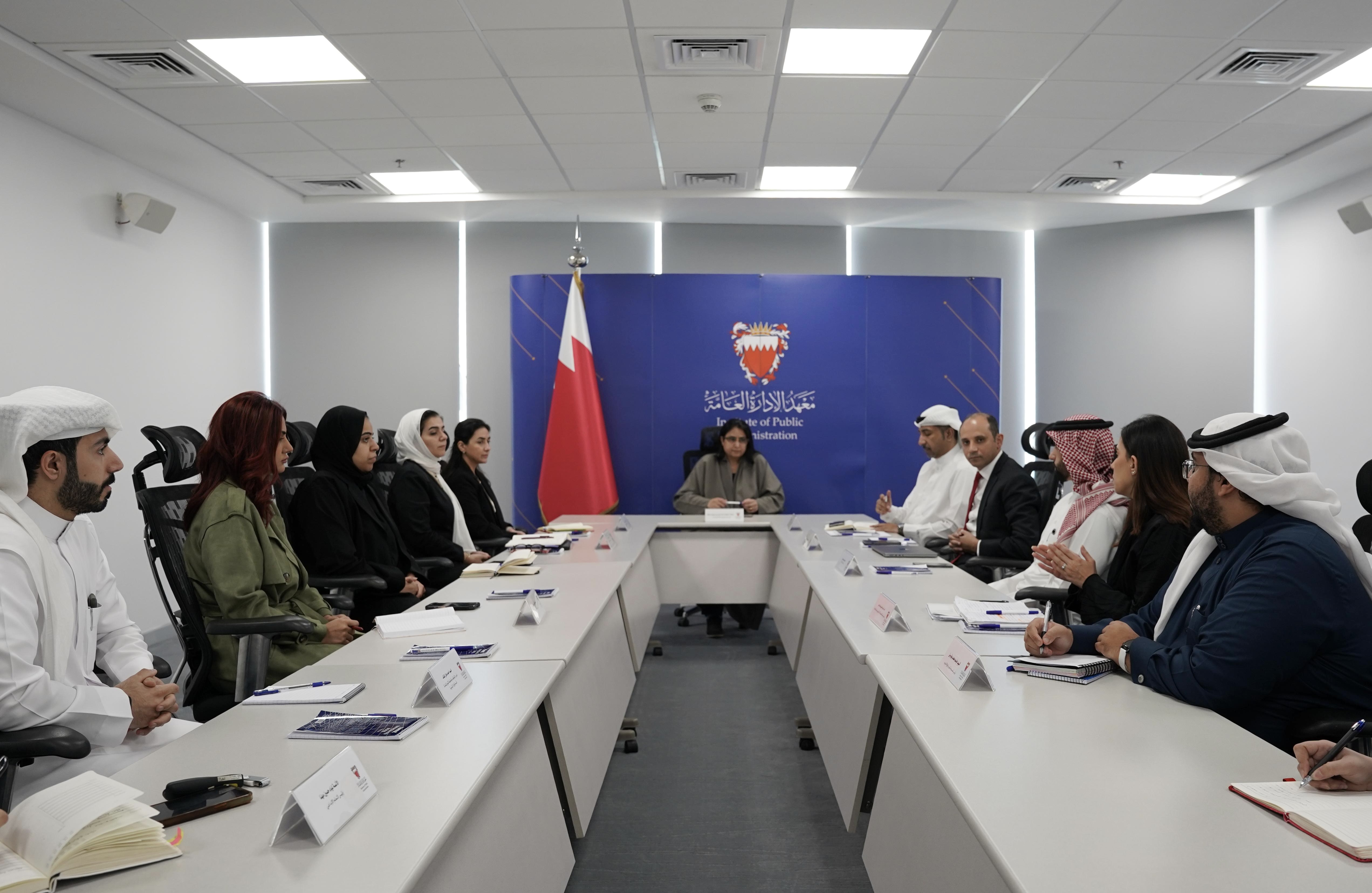

Her Excellency Dr. Shaikha Rana Bint Isa Al Khalifa, Director General of the Institute of Public Administration, affirmed that women are active partners in development and leadership thinking across all fields. She emphasized that the Institute of Public Administration will continue its efforts in training and development by formulating plans and supporting incentive policies for gender balance programs, in alignment with women’s evolving needs—contributing to their empowerment and enabling them to play a leading role in enhancing institutional outcomes in both the public and private sectors.
This came during the second regular meeting of the Equal Opportunities Committee at the Institute of Public Administration, chaired by Her Excellency Dr. Shaikha Rana Bint Isa Al Khalifa. The meeting reviewed and discussed training projects and initiatives aimed at building and developing women’s capabilities in accordance with the latest scientific and practical approaches in institutional work.
Her Excellency further noted that the committee highlighted key local and international practices that enhance women’s productivity and raise their efficiency by ensuring a supportive environment within institutional workplaces. She reaffirmed the Institute’s ongoing commitment to fostering a work environment that promotes creativity and productivity, thereby enhancing the performance of female staff at the Institute and supporting their participation in training and development initiatives.
| Image Caption:
– |
| To connect with our Institute of Public Administration:
Tel: (+973) 17383810 Fax: (+973)17383839 Email: pr@ipa.gov.bh Website: www.ipa.gov.bh Brief about the Institute: The Institute was established by Decree No. 65 of 2006, issued by His Majesty King Hamad Bin Isa Al Khalifa of the Kingdom of Bahrain on June 28, 2006. It is a government entity affiliated with the Cabinet. In line with its responsibilities, the Institute of Public Administration works to enhance government performance in areas such as policies, strategies, resource management, change management, and the development of government services. This is achieved through skill development, behavior enhancement, and knowledge acquisition via learning and training. Additionally, the Institute contributes to decision-making through consulting, problem-solving using scientific research methods, and capacity-building through assessment and personal coaching. Furthermore, the Institute promotes awareness and fosters a culture of government performance through strategic communication. |
Last Updated on 28 April 2025
